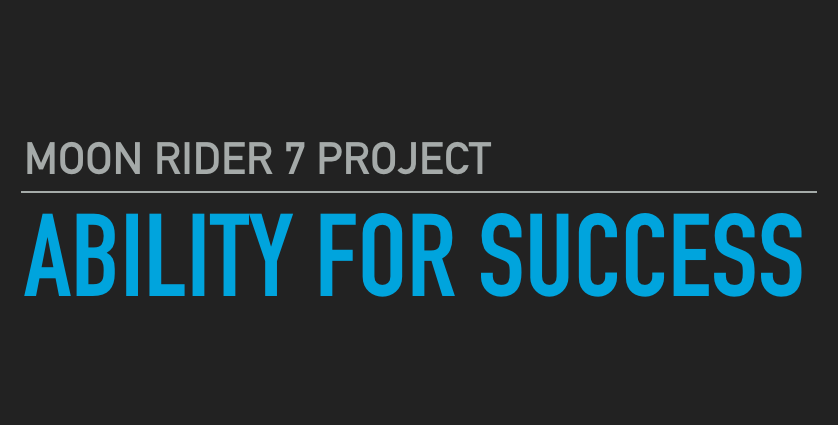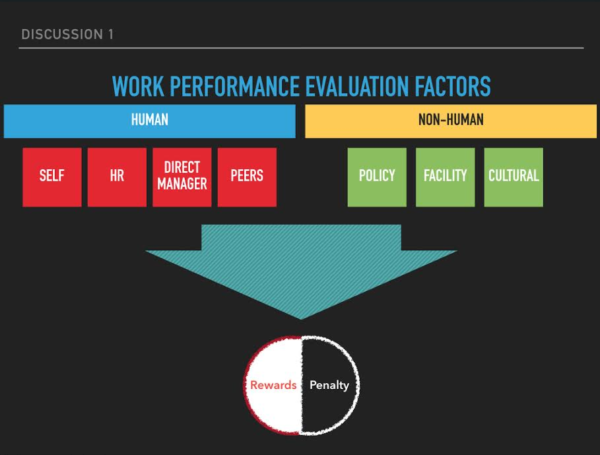This article is also available in: 日本語

We had held our 4th Ability For Success Online Discussion event on 12th of June, 2016.
It is our privilege to have 1 guest from Washington state and 2 guests from Japan.
The topic is How to evaluate ability and performance effectively and properly?

About the Participants:
We had a recently graduated high school student to share her point of view of the evaluation system at school in Japan. Her name is Nami. On the other hand, we have an Educational Assistant of a public school in Washington state, who is familiar with both Japanese education evaluation systems and American education evaluation system. Her name is Naoko and she also shared her expertise in this field.
In additional to the guests from academical backgrounds, we had a guest who works in a multinational corporation. Her name is Yumi. Mizuki and I also shared our personal experience.
Academic Performance Evaluation:
During the discussion, Nami pointed out that the school evaluation system in Japan only focuses on academic scores. The purpose of schools in Japan is very singular, which is to send students to a good school. Junior high schools want to send their students to a good high school. High schools want to send their students to a good university. A student’s performance on “academic subjects”, which are included in university entrance exams, is greatly emphasized. Teachers in Japan pay much less attention to students’ other abilities development rather than academic success, according to Nami. The phenomenon is quite similar in Taiwan. I remember during my junior high school years, from 1999 to 2002, schools in Taiwan often replaced PE, art, music classes with English, mathematics and basic science classes because high school entrance exams generally do not test a student’s performance on art, music or physical ability.
I then asked Naoko about the evaluation system in the school she worked with. As Mizuki mentioned in her research articles, public schools in the U.S. develop IEP (Individual Education Plan *1) with students with special needs and with the students’ parents and certified staff members. If the learning goals were not met, teachers will then communicate with the students, the students’ parents and certified staff members to set a new goal. I think an individualized learning plan can have a great impact on a student. Unfortunately the time was not enough and I was not able to ask if general schools in the U.S. also practice IEP for all students. Just to be clear, Nami does not have special needs. However, if she could have a more personalized learning plan, I cannot stop wondering if she would be making different life choices today.

Work Performance Evaluation:
Yumi mentioned many companies adopted KPI (Key Performance Indicator) to evaluate employees performance. The downside of this approach is that it is difficult to evaluate a task which cannot be measured. For example, it is easy to evaluate a salesperson’s performance by the revenue this salesperson generates. On the other hand, it is difficult to evaluate a secretary’s performance if a secretary’s job does not directly impact on sales, production cost or any other indicators that can be measured.
Yumi said her previous job description fell on the later category. She found it was difficult to receive good rating of work performance evaluation. Now she has a different job description, which has clearly defined KPIs so she can manage to receive good work performance feedback.
In addition to a systematic and objective check list, such as KPIs, a personal evaluation also plays an important part in work evaluation process in most companies. Its most common form is interviews between a supervisor and supervised employees. However, because interviews are conducted by human, they are less objective and may be very subjective some times. Naoko said that when you interview a person you know, your feedback may be biased and subjective. Naoko mentioned that in order to get a more precise evaluation result, it may be good to have a person, who does not work directly with the employee, to conduct the interview.
Today’s participants have a lot of valuable ideas and experiences to share. We even talked about the working cultural differences of U.S. organizations and Japanese corporations. We did not have enough time to cover the discussion points that we would loved to discuss.
Therefore, we decided to continue the discussion about working in our next Ability For Success Online Discussion. The topic will be “Working In A Foreign Country.” The date is July 17, 2016, a Sunday morning in Japan; Saturday night in EST. You can sign up here are: https://moonrider7.com/en/online-events/
Reference:
1. Education Issues In Japan That I Found From Visiting Elementary School In The U.S. –
Education Issues In Japan That I Found From Visiting Elementary School In The U.S.
NOTES: This summary reflects the discussion of the session. It contains personal opinions and does not represent any organization’s opinions.
Update:
2021-Aug-29: grammatical correction: “staffs” are replaced with “staff members” with the help of Linda Sakamoto.

Mizuki,
I was just reading one of your online essays about how students are treated differently in Japan and Taiwan than those in the U.S. I noticed when you used the word “staff”, you put an “s” on staff when you wanted to indicate the plural form of the word. This happens quite frequently with my Japanese students. Please write the word as ” staff” no “s” when using the singular and plural form of the word “staff”. It is just something I thought I could help you with, as you are doing such a wonderful thing writing about people like myself who face the everyday challenges of living with a disability in a foreign country, although after living in Japan it is no longer foreign to me. Thank you. Keep up the good work. Linda Sakamoto Here is an example: there will be one staff member at the meeting, and there will be ten staff members at the meeting. The “s” is put on the word member.
Hello Linda,
Thank you very much for the comment. This is Jeff.
I apologize for the delay. We are caught up with life, work and 2 very energetic angels.
Thank you for putting your professional feedback on the grammar. It is actually me reviewing English articles on this blog before they are released. I am also not a native English speaker and we are trying our best.
Please, please do not hesitate to comment on our articles if you spot any misuse of words that would change the message we are trying to deliver. We are open to feedback!
Cheers,
Jeff